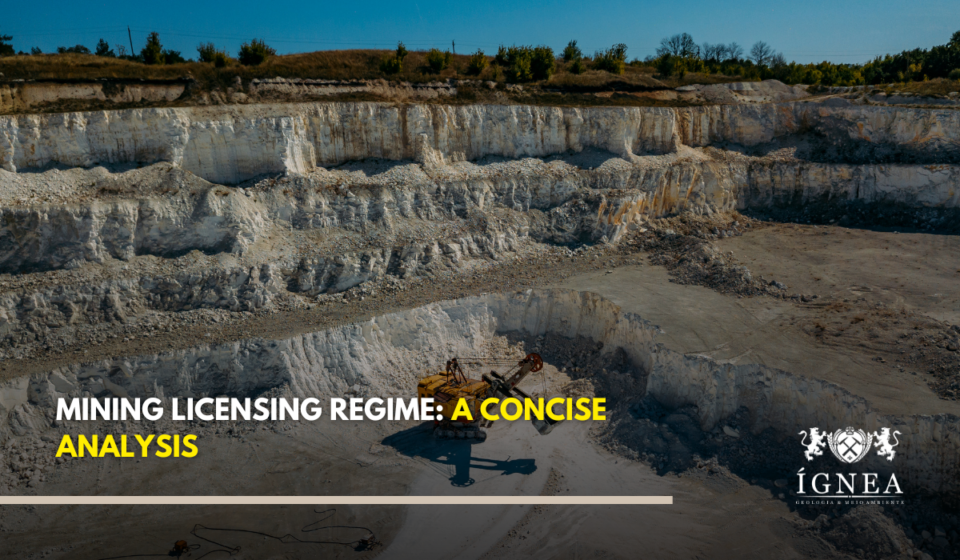The mineral licensing regime, established by the Mining Code (Decree-Law No. 227/1967) and regulated by Law No. 6,567/1978, defines the conditions for the exploitation of specific mineral substances. This simplified regime aims to facilitate access to lower-impact mineral resources, focusing on small-scale activities.
Substances Covered
Licensing applies to:
- Sands, gravels and grits for immediate use in civil construction.
- Rocks dressed for paving stones, curbs and similar purposes.
- Clays for various industries.
- Crushed rocks for civil construction and limestones for soil correction.
- Ornamental and cladding rocks.
- Calcium and magnesium carbonates for industrial use.
It is important to note that the exploitation of these substances is restricted to a maximum area of 50 hectares.
Licensing Process
The process is simplified, but requires compliance with crucial steps:
- Municipal License: The interested party must obtain a specific license issued by the local administrative authority of the municipality where the deposit is located.
- Registration with ANM: After the municipal license, it is necessary to register the license with the National Mining Agency (ANM).
- Fees: The registration of the license involves the payment of fees.
- Documentation: It is necessary to prove the nationality of the interested party, registration with the Ministry of Finance and present a descriptive report of the area.
Ownership and Obligations
- The right to licensing is granted to the landowner or to whom he authorizes, except in specific cases of public property.
- The licensee is obliged to notify the ANM of the discovery of other mineral substances not included in the initial license.
- The licensee must also submit an annual report of activities.
Cancellation and Rehabilitation
The license registration may be canceled for:
- Insufficient production of the deposit.
- Unjustified suspension of work for more than six months.
- Exploitation of unlicensed substances.
In case of cancellation, any interested party can apply to exploit the deposit, including the landowner.
Rights and Duties
The license holder has the right to exploit the deposit within the limits of the law, but also the duty to:
- Maintain communication with the ANM
- Respect environmental regulations.
- Pay rent for the occupation of the land and compensate for any damage to the landowner, when applicable.
Conclusion
The licensing regime is essential for the development of smaller-scale mining activities, allowing the exploitation of important mineral resources in a simplified way, provided that legal and regulatory requirements are observed.














